Solidarity Everyday Space is a co-governed space inside the European Solidarity Centre in Gdańsk. The aim of the Solidarity Everyday Space builds on the mission of the European Solidarity Centre, to commemorate and to propagate the ideals of the 1980s Polish Solidarity movement: freedom, democracy and the power of civic society. Solidarity Everyday was established to strengthen Gdańsk’s civic actors – from activists, informal groups to NGOs – through offering them space for meetings, workshops and exhibitions. It also runs social, cultural and civic programmes, currently concentrating on the communities around the Shipyard neighbourhood in the vicinity of the city centre.
We are in the Gdańsk Shipyard area, the epicentre of the Solidarity movement of the 1980s, where shipyard workers formed the first free trade union, which ignited events that led to the transition from communism to democracy in Poland. Here stands the European Solidarity Centre, which was awarded the European Heritage Label that identifies sites that played an important role in European history and culture.
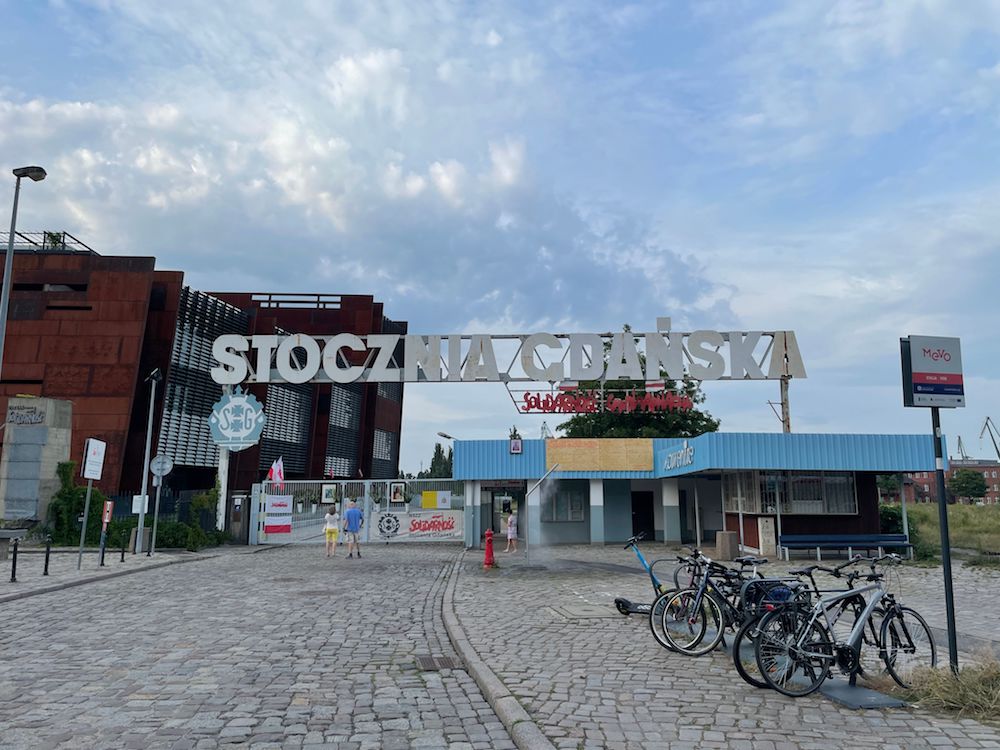
The ECS is an awe-inspiring, massive, five-story building, blending into its surroundings with giant rusted exteriors. This award-winning, interactive museum also hosts an atrium filled with trees and plants, conference halls, library, cafe, restaurant, and a roof-top terrace overlooking giant cranes and the port. The Centre aims to keep the ideals of the Solidarity movement alive and puts a great emphasis on “civic energy” as the heritage of Solidarity. Inside this museum, on the second floor are the bustling, multifunction spaces of Solidarity Everyday. Magdalena Skiba from the Gdańsk Municipality who coordinates cooperation with civil society actors and Bartosz Rief, Social projects specialist at the European Solidarity Centre takes us around this impressive space and explains the idea behind Solidarity Everyday and the processes that led to its establishment.
Could you introduce the European Solidarity Centre?
Bartosz Rief: The European Solidarity Centre is located in the Gdańsk Shipyard—the birthplace of the historical Solidarity movement of Poland. It is connected to the history of democratic processes and changes in Poland’s 20th century history. Part of this building is a museum dedicated to the ideals of Solidarity: democracy, an open and solidary society, and culture of dialogue. But the Centre is more than a museum. It is not just about history. We also have a library, a multi-media library, we also have spaces for social activists, NGOs and informal groups and we host a whole program connected to social activism and culture.
For the European Solidarity Centre solidarity is not only about a historical solidarity movement, but it has a place also in the present and the future. We are definitely not just a museum but our past helps us to think about what solidarity means in the 2020s. It has a meaning about social activism, our connection with local communities, for example by supporting immigrants and cooperating with them. It’s also about building dialogue and building communities around our institutions. I run a special social project called Solidarity Everyday.
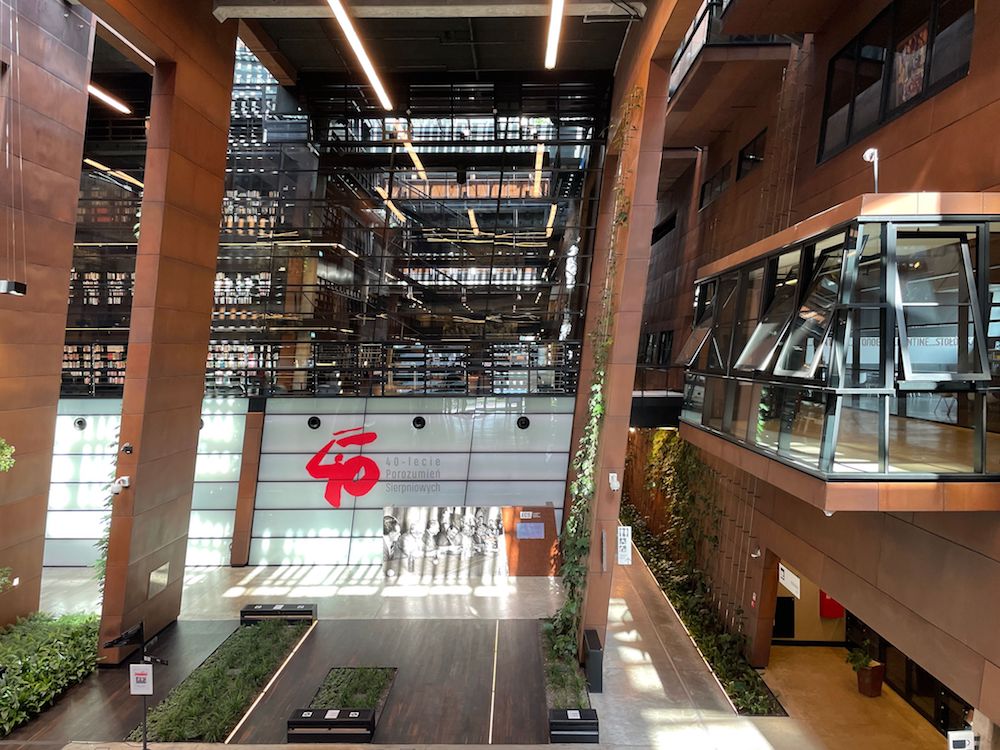
What is Solidarity Everyday?
Bartosz Rief: Solidarity Everyday is a project of the European Solidarity Centre that offers space as well as a programme for non-governmental organisations, informal groups and social activists, supporting the local neighbourhood. For example, if a local neighbourhood wants to create something on their street, we work with them, and help to develop their ideas and make them happen. To do this we are using other programme Understanding August which is dedicated to cooperate with neighbourhoods. While so far we have helped local communities in the whole of Gdańsk and its suburbs, from this year on we will focus our cooperation only on the shipyard area right by the Centre and their communities.
It is also important that Solidarity Everyday Space is also a substantive program. We organize meetings, workshops, individual support and try to cross-link people. We want to support social activists in various ways.
Why is it important to have space for informal groups and NGOs?
Bartosz Rief: It is very important to support informal groups and non-governmental organisations because a lot of people who work on social projects or social activities need a safe place to meet. For me, personally, in my experience working with non-governmental organisations and cooperating in smaller groups, it was difficult for us to find spaces for our meetings. For example, we met in a private flat, but it was not efficient to work this way: the washing machine is on, dogs or cats interrupt you. Other times we met in restaurants or pubs, but talking in a pub or in a restaurant, while great for building relationships, is again not an ideal space for concentrating and developing projects and ideas. Instead, it is good to have a safe place which you can easily book in advance and use to work with other people, your colleagues or guests.
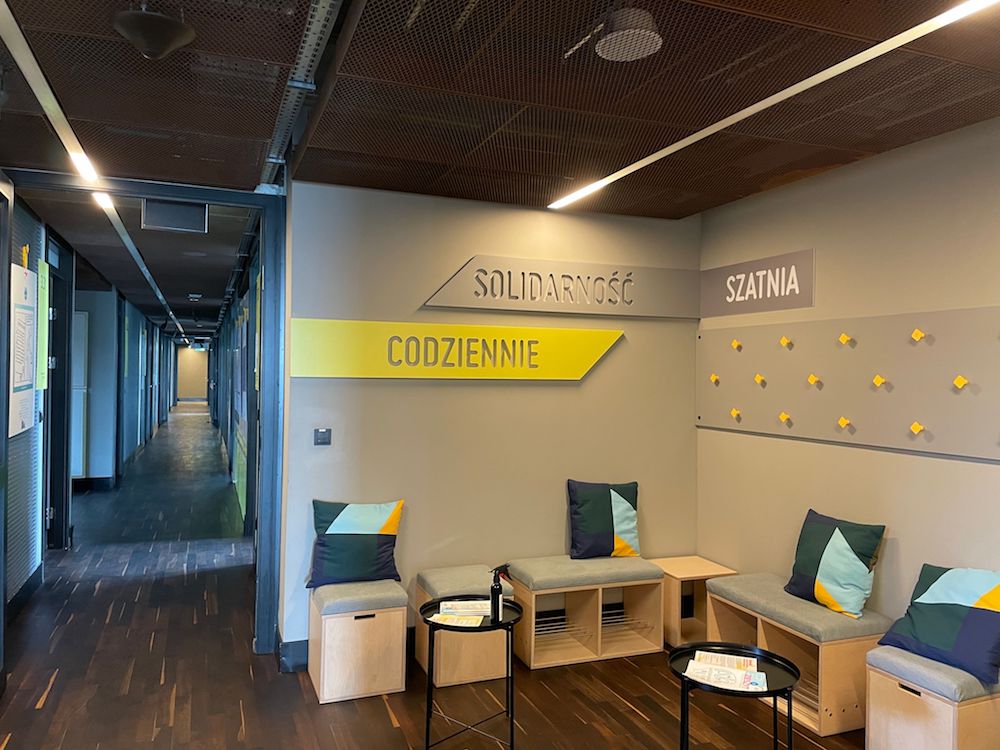
What were the inspirations for Solidarity Everyday?
Bartosz Rief: We took inspiration from various places, from Poland, but we also searched for solutions from other countries. We researched how non-governmental organisations, alternative spaces and other institutions operate. I was keen to find good practices in Copenhagen because I knew there are a lot of initiatives and a lot of squats that were turned into institutions or cultural spaces. So for me, personally, Copenhagen was a big inspiration.
Can you tell us about the process of establishing Solidarity Everyday?
Magdalena Skiba: When the idea of the Solidarity Centre came up, all active NGOs in the city insisted on having a space for themselves in the building. I was an activist in an NGO and some other organisations, and we were also talking to the mayor, pushing to be part of the institution. We aspired to have a much bigger space with exhibition rooms for NGOs. There was an open call for the organisations that wanted to have a space in the European Solidarity Centre. The idea was for them to be cooperating with the Centre and give input towards the programme of the Centre. However, it did not work well, as some organisations cooperated and gave input but others didn’t. There was an evaluation process and it was decided instead to have an open, common space, which will be more effectively used by not only organisations, but also informal groups and activists. That was the moment when the idea for Solidarity Everyday was formed.
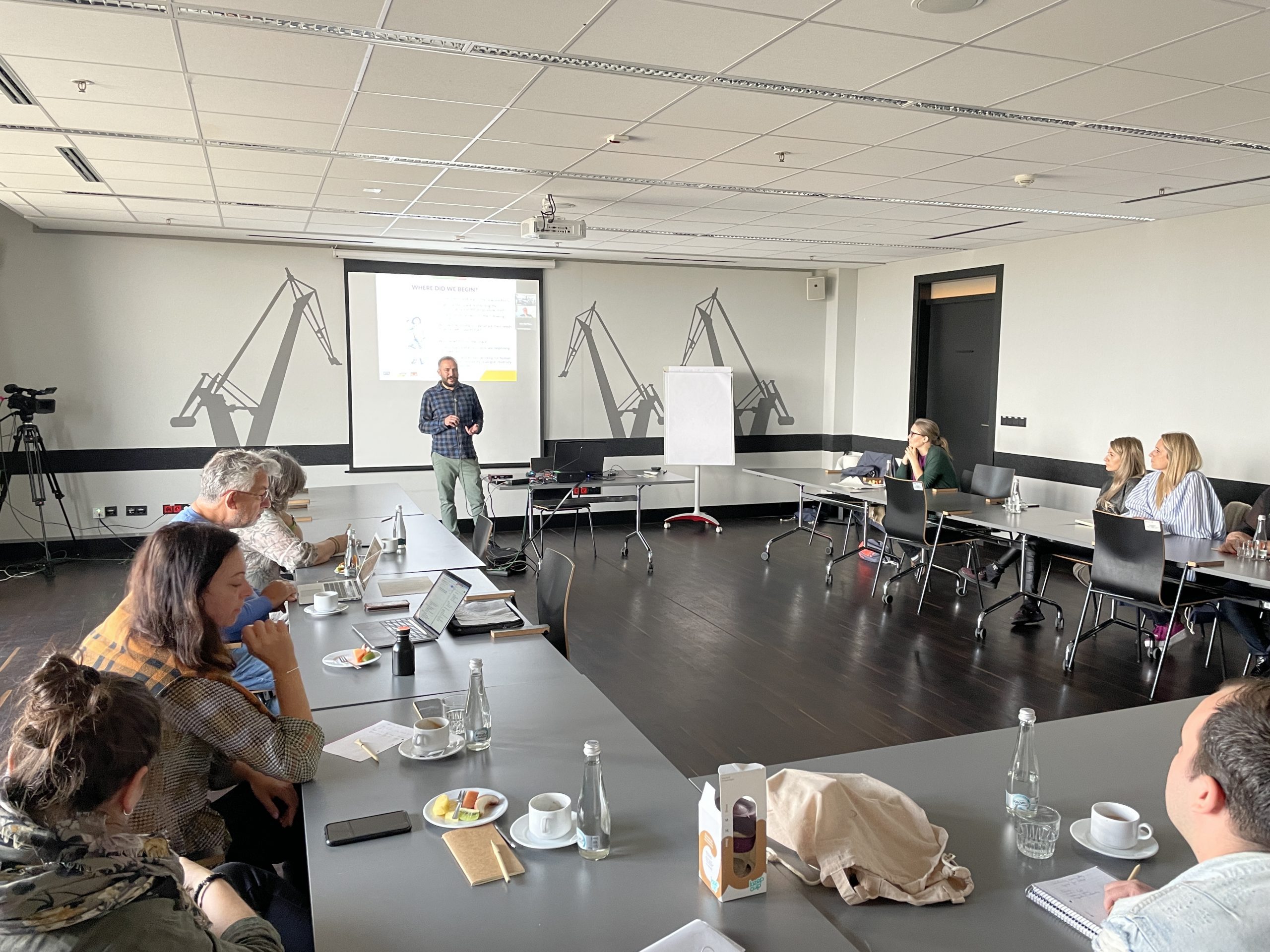
Did you have a clear idea how you wanted to use the space?
Bartosz Rief: When we established this space, we wanted to go beyond our own personal perspective and find out from other people, from the NGOs, what their needs were. What do they want from the space? What functionalities do they want here? What’s important for them? What would support them developing their ideas?
So, first of all, we had a testing period. After that, we decided to take forward all of the information from the groups and organisations who gave feedback and started working with architects to create the Solidarity Everyday Space. We also looked at how other NGOs and institutions work in our country as well as abroad. We also looked at how squats or alternative spaces operate because sometimes there’s a strong energy and grassroots movement in such places. So this was the first step in creating Solidarity Everyday Space.
Our space was established in 2017. We had two full years of building co-operations, hosting a lot of people and a lot of initiatives here. It was like a domino. People told others that there is a good space to work and to spend time and that’s why Solidarity Everyday Space became more and more popular which we really appreciate.
Apart from offering space, Solidarity Everyday also runs social and civic programs. Can you tell us more about the direction of these programs?
Bartosz Rief: We don’t want to work only in this building but also to work outside. This year we focus on the shipyard area and we cooperate with neighbours who live in the buildings over there. The area has a lot of potential but it is a difficult place from a social perspective, because the flats and buildings are old and run down and it’s a very difficult place to talk and work with the residents. We decided that we have to be here and we have to cooperate with our local neighbours to make them stronger. The area is also changing all the time with new development projects taking place.
Some of our activities are replicated in other cities. For example, here, we are working with immigrants through our CZEŚĆ! Programme (which means “Hello!” in Polish) which is good practice-sharing programme that serves also as an inspiration for Ngos and institutions who are focusing on working with migrant and refugee communities in their neighbourhood.
These days an important area of our activity is human rights and this is the direction we will follow in the near future. We are currently running a training programme that offers participants to broaden their knowledge of human rights. We would like to undertake this activity with officials, social activists and artists. It is a diverse group, but it is interesting what can come out of the cooperation of people from different groups.
Solidarity Everyday consists of cosy, well-designed spaces space with high quality materials used which is important in a public building. Can you tell us about the design process of the space?
Bartosz Rief: For the success of Solidarity Everyday, it was paramount to conceive and build the space with a high quality design.As I mentioned before, the first part of the work was a testing phase, it was a time of exchanging ideas and mapping the needs of NGOs and informal groups. Then we took their ideas and the information we received to the designers and architects, who were a local group of architects. The planning phase was between the designers, architects and the groups, in constant discussions to represent different points of views.
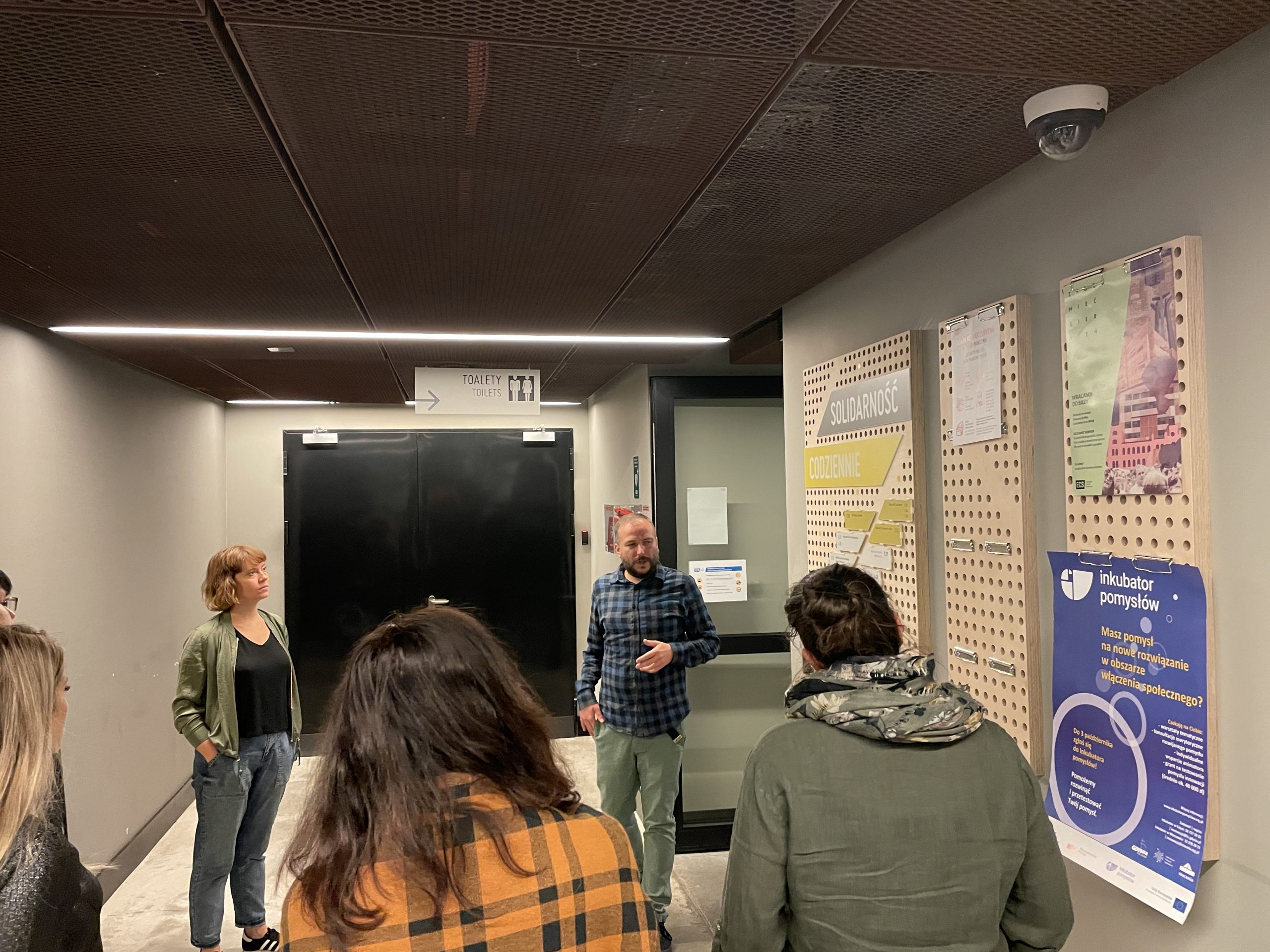
The design of the space allows for cooperation and different situations. The space is quite informal, you can work in different teams or alone. It has meeting room areas, lockers, mailboxes, information boards. All the tables are movable and the space is designed to create and encourage an interactive and flexible work environment.
Solidarity Everyday is a place designed for dialogue. A lot of people meet here during coffee breaks, and during such breaks people talk to each other, develop new ideas and try to find a common ground.
How did the pandemic and various lockdowns effect the space and its activities?
Bartosz Rief: Lockdown is a hard time for public spaces and for people who are working face to face. We were closed for almost a year. We have re-started to work again since June 2021 but still in a limited way. We are happy that the NGOs came back to us but we also work with new initiatives here and new people too. But the pandemic changed everything. Many NGOs and groups had to change the focus of their work and adapt to the new pandemic situation.
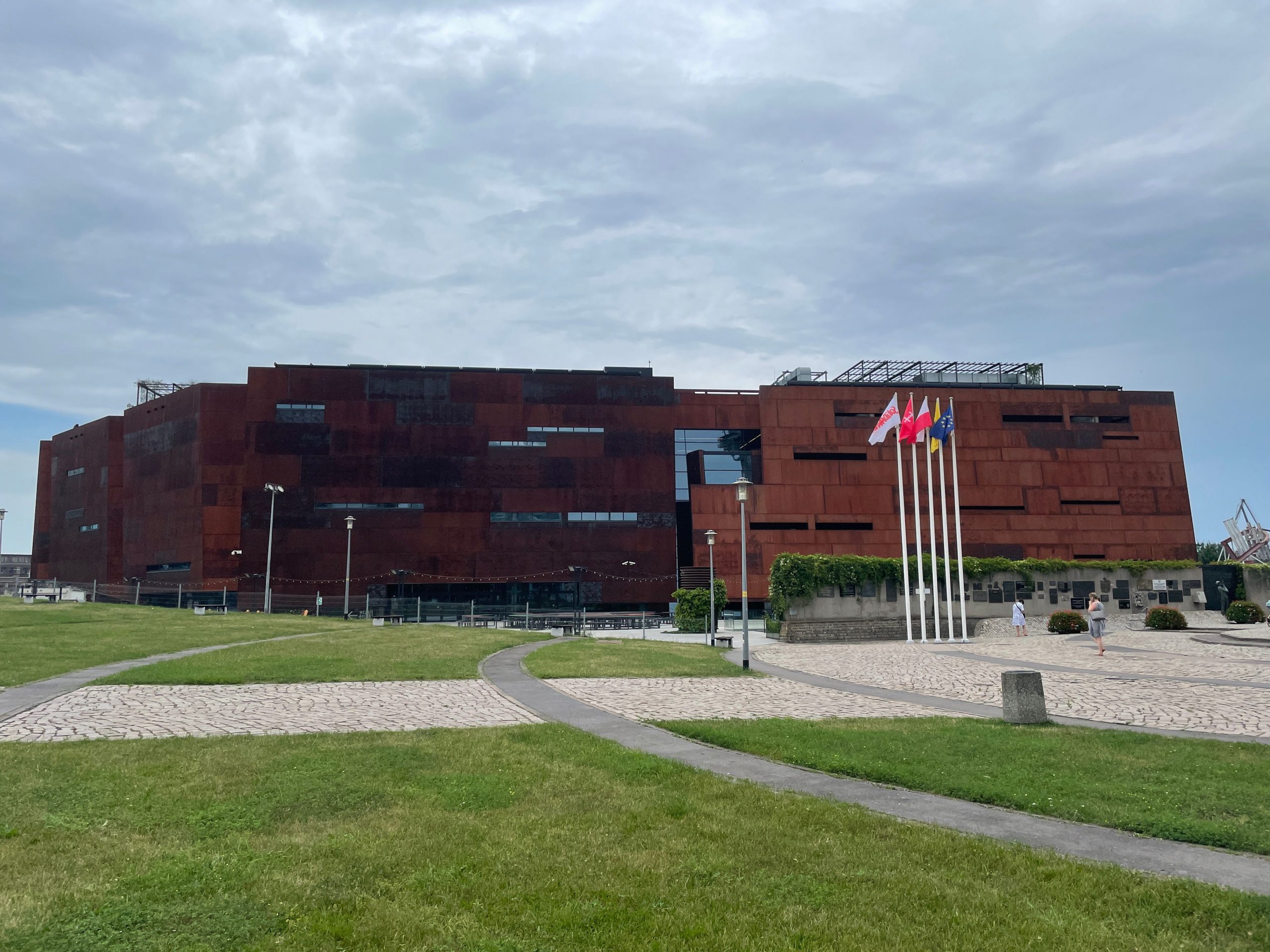
We had to be more creative about organising meetings with our associations, using online and digital tools. We asked people what their needs were and we developed one of our rooms into a studio with a professional camera, professional microphone and lamps where you can take part in, as well as produce your online meetings, looking and sounding more professional than if you organised the meeting on a mobile phone for example.
It was at this time we found out about a lot of initiatives dedicated to our local neighbourhood. In Gdańsk there were a lot of residents who supported their neighbours during the pandemic. For example, they put up advertisements: ”I can walk your dog and I can buy food for you”. So it was a hard time on the one hand but on the other hand it was a good time to meet with your neighbour living in the same building. We are trying to keep this feeling and this positive way of thinking in our lives.
What are you focusing on now?
Bartosz Rief: We constantly need to improve our work. When you are cooperating with people, you need to work on yourself, on communicating with others and find ways to talk to others, to find out their needs, whether they are people, organisations or institutions.
Also we are focusing on how to develop our Centre to be more ecological, friendly and accessible to others. As I mentioned before, in the near future our main focus will be on will topics such as human rights, civic engagement and sustainable development.
This interview was created in the framework of the UIA-URBACT Transfer Mechanism Network Co4Cities https://urbact.eu/networks/co4cities.

